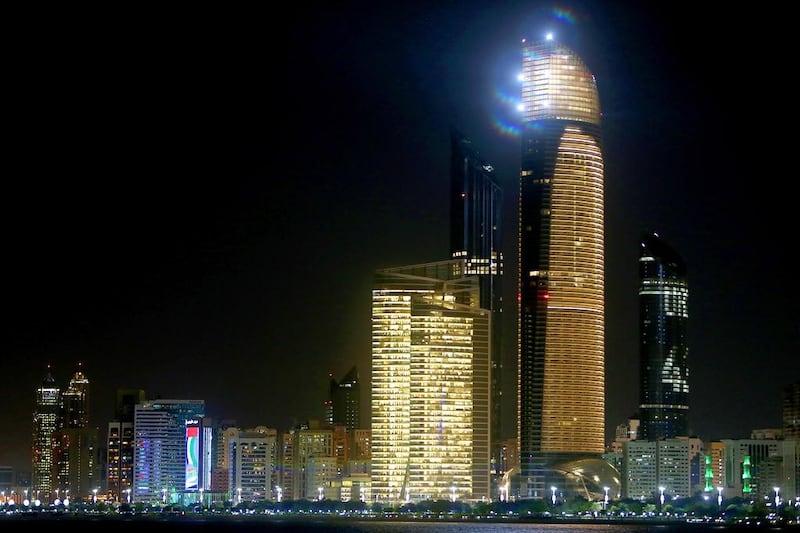The Abu Dhabi Government is reviewing its energy and water pricing subsides as it aims to reduce consumption.
“We discussed it here at the policy level, particularly with the Abu Dhabi government, which indicated they are now looking at ways to streamline their subsidy policies and put in place something different, something better targeted,” Harald Finger, the IMF’s head of mission for the UAE, was quoted by Reuters as saying.
“This is particularly the case of the electricity and water subsidies. It is probably too early to know exactly what is their plan, but the broad direction in which it is headed is the right one.”
Al Ittihad, the Arabic-language sister newspaper of The National, reported last week that the government review includes increasing prices and creating new tariff segments based on consumption, citing sources with knowledge of the matter.
Power and water subsidies this year are expected to cost the emirate about Dh17.5bn. That’s up more than 9 per cent from Dh16bn in 2012, and could rise to Dh45bn in the next few years, according to the Abu Dhabi Executive Council.
The IMF estimates, using data from the Abu Dhabi Department of Finance that “subsidies and transfers” will account for nearly 20 per cent of annual expenditure — or Dh47.8bn — this year.
Possible price increases are in line with the government’s efforts to reduce high electricity and water consumption rates, which are per capita among the highest in the world and twice that of the United States.
The annual increase in energy consumption in Abu Dhabi is about 8 per cent, while water is rising at 4 per cent. The emirate last year consumed 1.1 trillion litres of desalinated water.
Any increase in utility costs would likely contribute to increasing living costs in the emirate, with inflation in September at 3.7 per cent. However, Al Ittihad's sources said customers could significantly reduce their bills by changing consumption patterns.
Last week, the Minister of Energy, Suhail Al Mazrouei, said new legislation would be introduced to rationalise energy consumption.
“In view of the rising prices of fuel, especially current and future gas imports, the water and electricity generating sector would have to deal with a significant challenge in terms of costs, especially considering the current wastage levels, which could lead to a review of energy fees and subsidies,” he said.
The review of subsidies comes as global oil prices have plunged more than 30 per cent since midsummer, with Brent crude on Wednesday at four-year lows of just below $82 per barrel.
Oil sales last year accounted for about 80 per cent of Abu Dhabi’s revenue, when dividends from the Abu Dhabi National Oil Company (Adnoc) are included.
According to Capital Economics, the emirate needs oil prices to stay above $45 a barrel to break even, though the UAE as a whole requires a price near $81, according to Standard & Poor’s.
Last week, the UAE’s gulf neighbours warned that combination of the current level of oil prices and subsidies is a threat to region’s finances.
Kuwait’s finance minister, Anas Al Saleh, said that Gulf states must “reduce their dependence on oil”, and that “implementing [reforms] has become inevitable”.
“Comprehensive economic reforms including the reform of imbalances in public finances,” were necessary, Mr Saleh said.
“[Reform] must be undertaken through strengthening of efforts to diversify away from oil and decrease dependence on oil revenue, which is now inevitable,” he said.
Oman’s oil and gas minister Mohammed bin Hamad Al Rumhy told Reuters that: “What is really destroying us right now is subsidies … We simply need to raise the price of petrol and electricity.
“We are wasting too much energy in the region and the barrels that we are consuming are becoming a threat now, for our region particularly … I think we have a serious problem.”
business@thenational.ae
Follow The National's Business section on Twitter





